Another venomous attack on the Lincoln administration by the artist of "The Commander-in-Chief Conciliating the Soldier's Votes, no. 1864-31," and "The Sportsman Upset by the Recoil of His Own Gun," (no. 1864-32). Here Lincoln and his cabinet are shown in a disorderly backstage set, preparing for a production of Shakespeare's "Othello." Lincoln (center) in blackface plays the title role. He recites, "O, that the slave had forty thousand lives! I am not valiant neither:--But why should honour outlive honesty? Let it go all." Behind Lincoln two men, one with his leg over a chair, comment on Lincoln's reading. "Not quite appropriately costumed, is he?" comments the first. The second replies, "Costumed, my dear Sir? Never was such enthusiasm for art:--Blacked himself all over to play the part, Sir!" These may be Republicans Charles Sumner and Thaddeus Stevens. Before them is a wastebasket of discarded documents, including the Constitution, Crittenden Compromise, Monroe Doctrine, "Webster's Speeches," "Decisions of Supreme Court," and "Douglass." At left five ballerinas stand beneath a playbill advertising "Treasury Department, A New Way to Pay Old Debts . . . Raising the Wind . . . Ballet Divertissement." Near their feet is a pile of silver and plate, "Properties of the White House." They listen to a fiddler who, with his back turned to the viewer, stands lecturing before them. At right Secretary of War Edwin Mcm.asters Stanton instructs a small troop of Union soldiers waiting in the wings to ". . . remember, you're to go on in the procession in the first Act and afterwards in the Farce of the Election." One soldier protests, "Now, see here, Boss that isn't fair. We were engaged to do the leading business." Nearby an obviously inebriated Secretary of State William Seward sits at a table with a bottle, muttering, "Sh--shomethin's matt'r er my little bell: The darned thing won't ring anyway cĚ_Ąonfixit'." Seward reportedly once boasted that he could have any individual arrested merely by ringing a bell. He was widely criticized for his arbitrary imprisonment of numerous civilians during the war. On the floor near Seward sits Lincoln's running mate Andrew Johnson, a straw dummy, with a label around his ankle, "To be left till called for." At far right Navy Secretary Gideon Welles slumbers, holding a paper marked "Naval Engagement, Sleeping Beauty, All's Well That Ends Well." In the background abolitionist editor Horace Greeley bumbles about moving scenery and complaining, "O bother! I can't manage these cussed things." Union general Benjamin F. Butler (directly behind Lincoln), dressed as Falstaff, recites, "We that take purses, go by the moon and seven stars; and not by Phoebus! I would to God, thou and I knew where a commodity of good names were to be bought!" He holds a sign "Benefit . . . Falstaff . . . Beauty and the Beast." By this time Butler had achieved notoriety as a dissolute plunderer. To Butler's right a man (who might be the stage manager) orders the crew, "Get ready to shift there 'ere Flats for the Temple of Liberty." The artist of this and nos. 1864-30 and -31 was an exceptionally able draftsman. Judging from the acidity of these satires, he may have been a Southerner, perhaps a Baltimorean. The only satires of the time that compare in artistic quality and political venom are those of Adalbert Volck.|Signed with monogram: CAL?|Title appears as it is written on the item.|Weitenkampf, p. 141.|Forms part of: American cartoon print filing series (Library of Congress)|Published in: American political prints, 1766-1876 / Bernard F. Reilly. Boston : G.K. Hall, 1991, entry 1864-32.
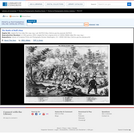
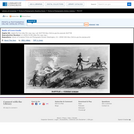
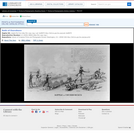
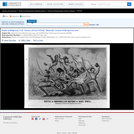
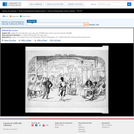
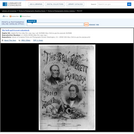
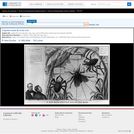
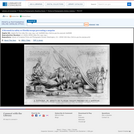
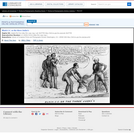
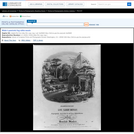
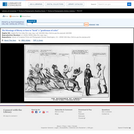
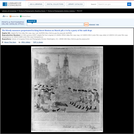
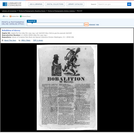
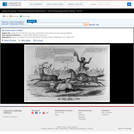
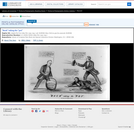
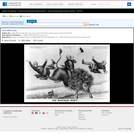
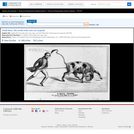
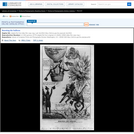
![[Calendar For 1863]](https://img.oercommons.org/160x134/oercommons/media/upload/materials/screenshots/materials-course-76484.png)
![[Calendar For 1863]](https://img.oercommons.org/160x134/oercommons/media/upload/materials/screenshots/materials-course-76485.png)